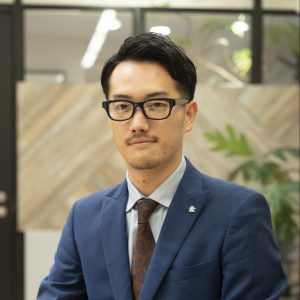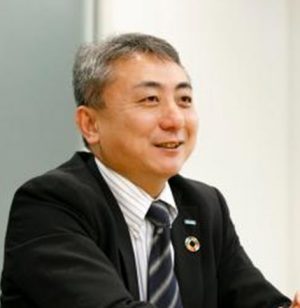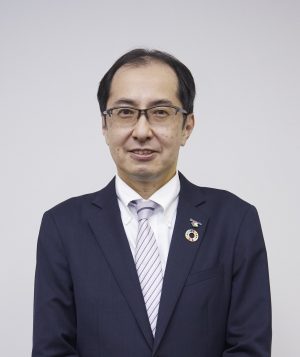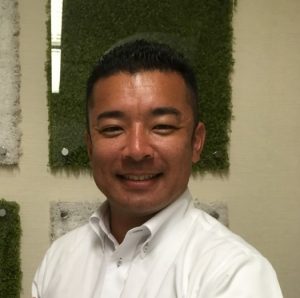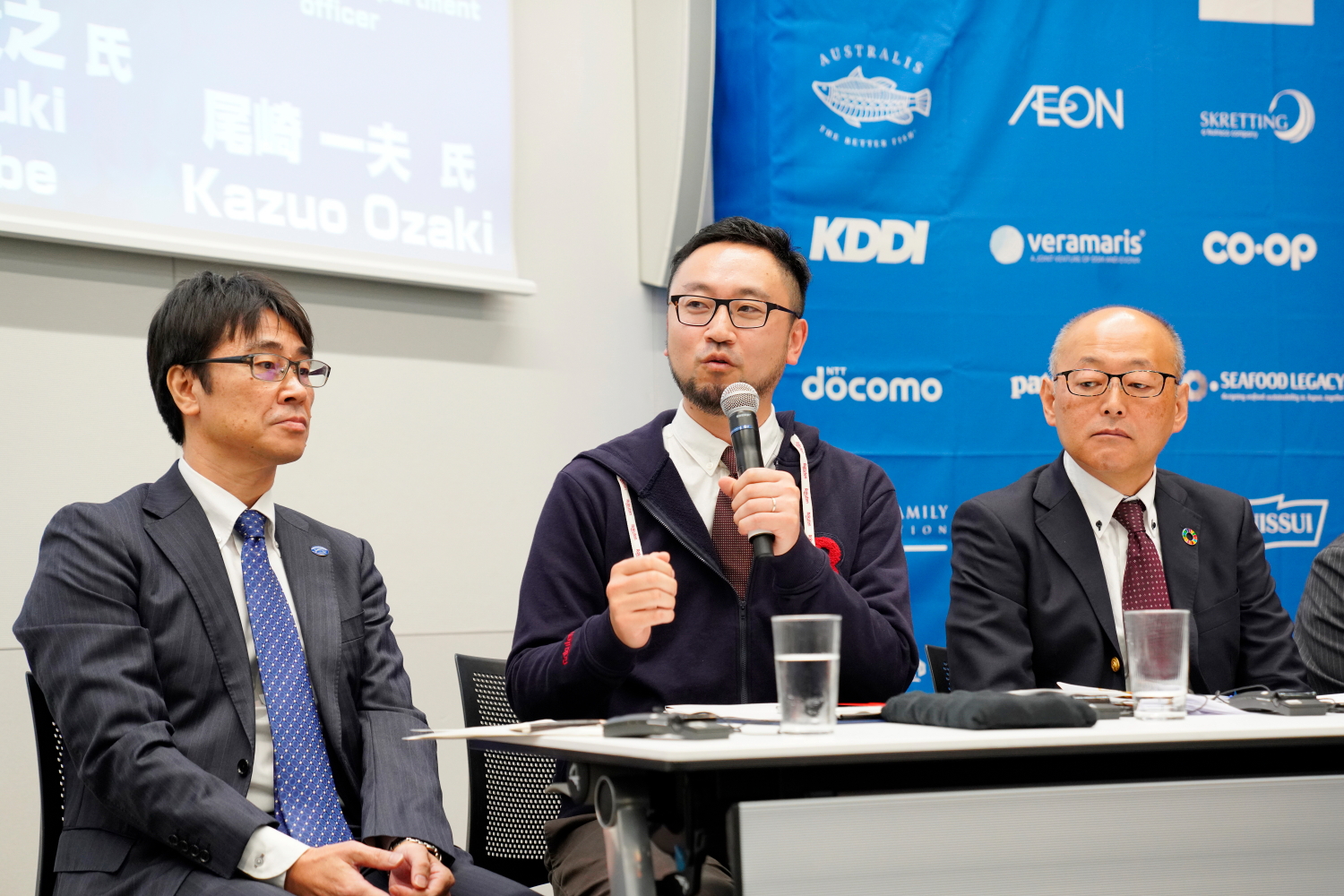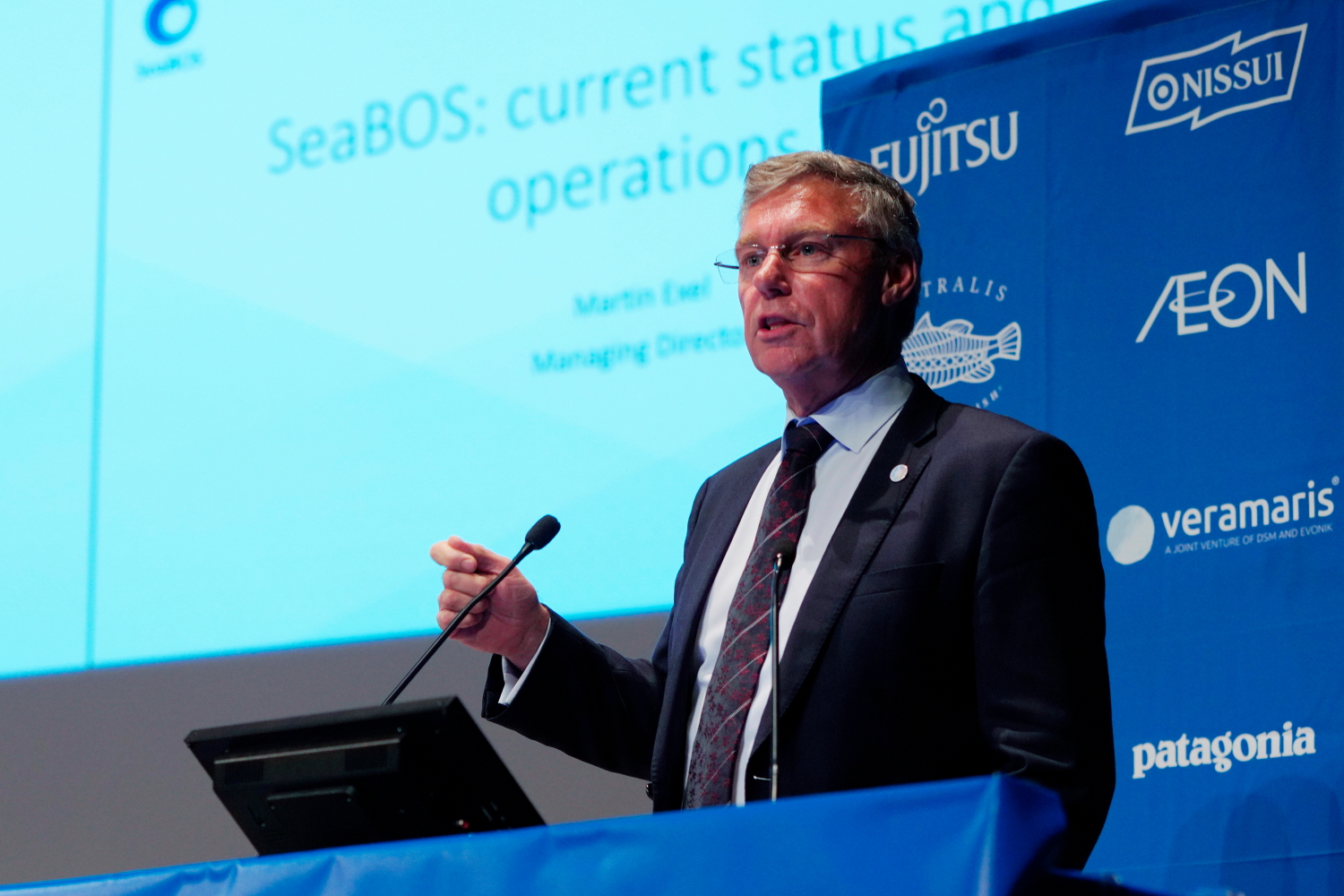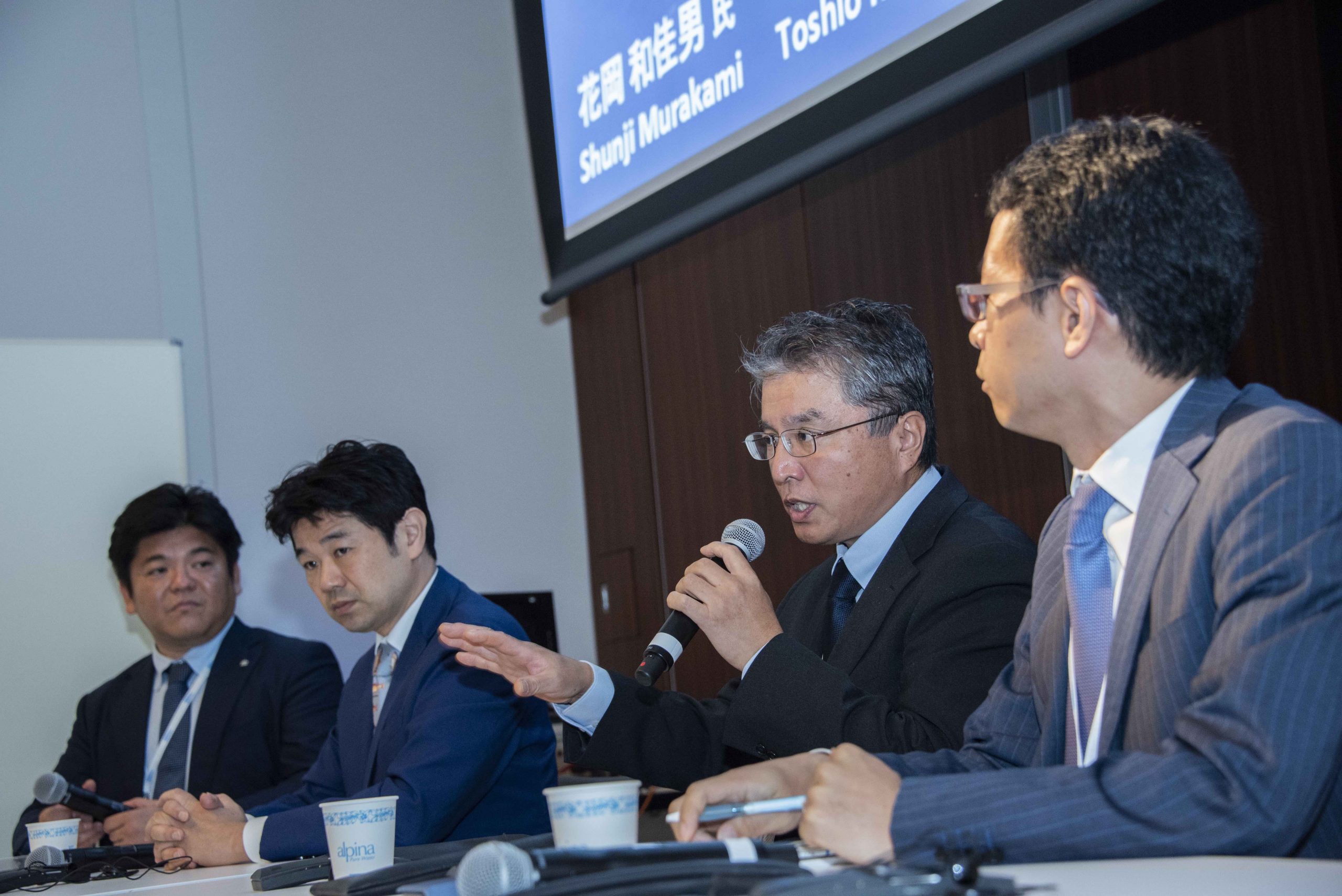Introducing Sustainable Seafood to Corporate Cafeterias
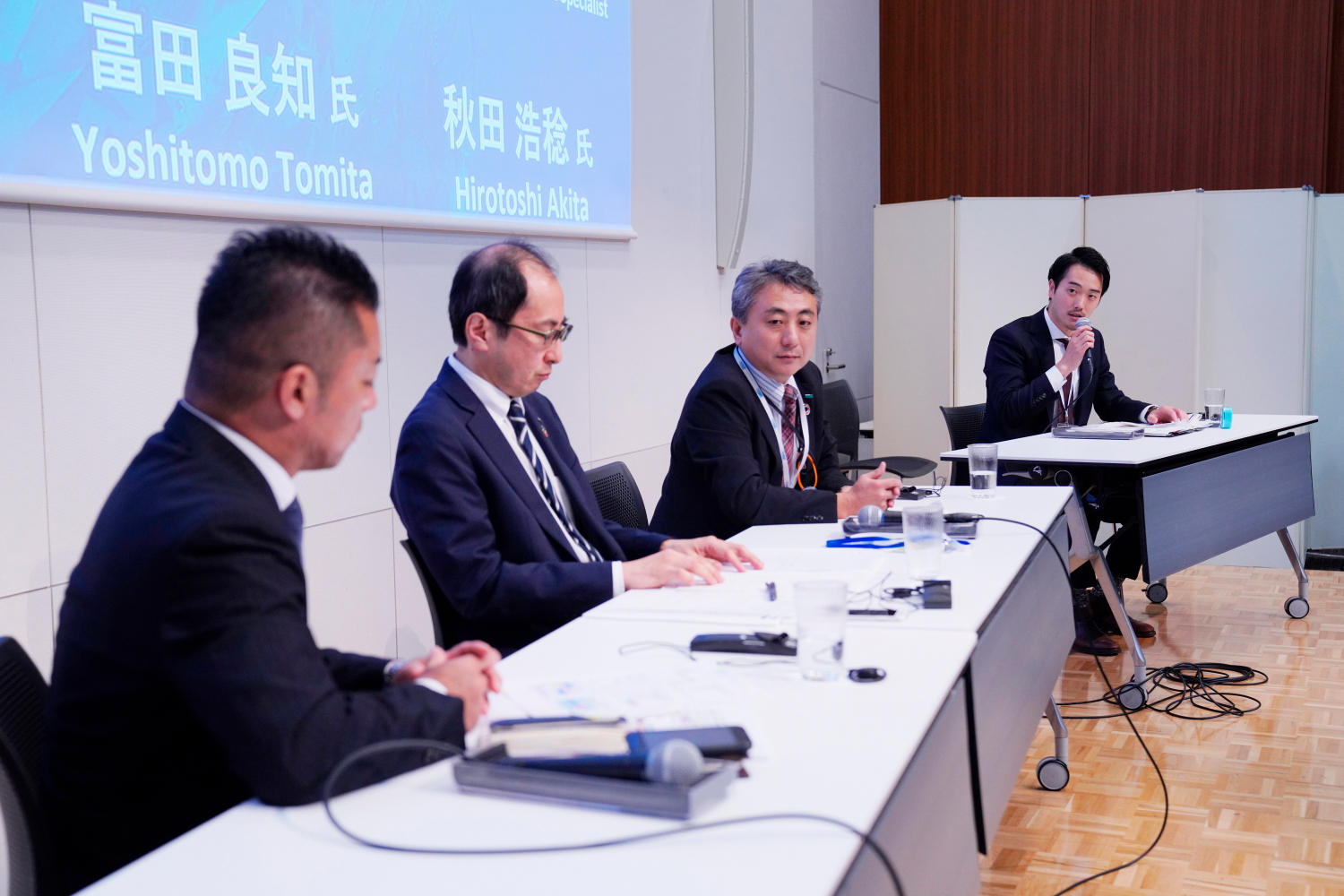
70% of major companies in Japan are believed to have corporate cafeterias. Serving sustainable seafood at corporate cafeterias has become a new way to generate new value for the companies. In this session, industry leaders discussed future cross-sector collaboration opportunities for none-seafood related companies in Japan to contribute to the global ocean issues.
Supporting SDGs Endeavors as an Insurance Company
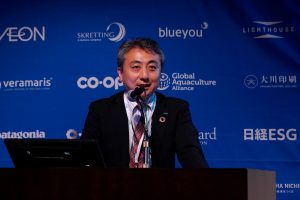
The MS&AD Insurance Group introduced sustainable seafood to its cafeteria in October 2019. Mr. Tomita spoke about their endeavors as an insurance company.
Insurance companies’ primary function is to inform clients about potential risks and to reduce the economic burden in case of an accident. In terms of sustainability, their objective is to realize a resilient and sustainable society by 2030. At the MS&AD Insurance Group, Sustainable seafood was introduced to the employee cafeterias in order to raise awareness within the company that SDGs are business risk and business opportunities for social innovation. The sustainable procurement of raw materials is quickly becoming a major challenge for many companies. Mr. Tomita states, “As an insurance company, we hope to support companies and organizations by showing the example.”
Mr. Tomita also highlighted the importance of cross-sector corporate partnerships. Panasonic and MS&AD Insurance Group are both core members of the Japan Business Initiative for Biodiversity (JBIB), one of the largest business platforms for biodiversity conservation in Japan, consisting of 44 member companies.
Through the business platform, they were able to share the lesson learned and know-how on introducing certified seafood. Mr. Tomita hopes to utilize the network and expand the movement and partnerships among the member companies.
Sustainable Seafood Business Network to Transform the Supply Chain
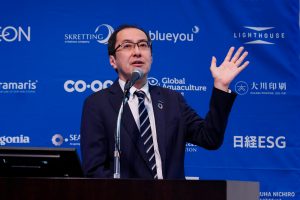
In order to deliver certified sustainable seafood, each stakeholder involved in the supply chain must receive CoC certification. When Panasonic introduced MSC and ASC certified seafood at their cafeteria, AIM Services became one of the first foodservice companies to acquire CoC certification. Over the past year and a half, more companies in the foodservice and food distribution industries have been receiving CoC certification.
Sustainable seafood became popular among Panasonic employees. It has become one of the top sales menu items. Panasonic aims to introduce sustainable seafood at all 100 of its locations in Japan by the end of the fiscal year 2020. Mr. Kino said, “to expand the sustainable seafood movement in Japan, end-users like us need to be more active. Then other players on the supply chain such as foodservice companies, distribution companies, and even producers will follow.” Mr. Kino continued, “I would like to establish a network of companies with sustainable seafood cafeteria in 2020 to build momentum toward 2030 and achieving SDGs.”
Building Demand for Certified Seafood Through Corporate Networks
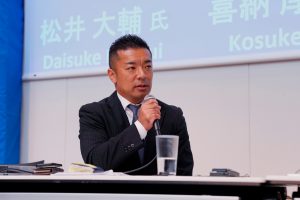
From the standpoint of a food service company, Hirotoshi Akita, from Seiyo Food remarks, “It is effective for companies that use sustainable seafood to consolidate their requests. If user companies can gather their information and create a list of shared ingredients or menus, the demand for sustainable seafood will become more visible for the other players on the supply chain. This will even encourage producers to get certified.”
Mr. Kino added, “At this moment, there are not many options for B to B use, and the cost is quite expensive. Foodservice companies work really hard to meet our requests. We will continue encouraging other companies to introduce sustainable seafood to their cafeteria and expand the market demand and support, which will improve the efficiency and cost of sustainable seafood throughout the supply chain.”
